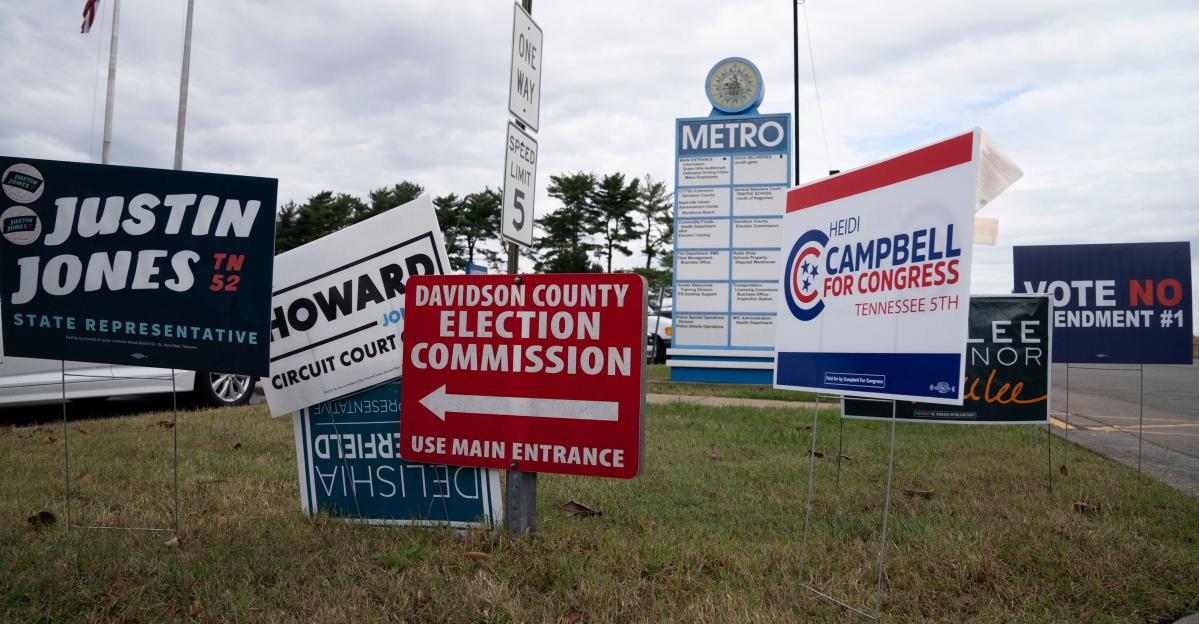What exactly are political “bona fides,” and who holds the power to define them?
This question lies at the crux of a recent lawsuit filed against Tennessee on Wednesday by a former Knoxville mayor and a voters organization.
The suit challenges a new law in Tennessee that mandates polling places to display prominent signage warning voters it is illegal “to vote in a political party’s primary without being a bona fide member of or affiliated with that political party.” This law was enacted after some Republicans expressed frustration over Democrats crossing over to vote in Republican primaries.
The term “bona fide” means good faith, and similar language has long been noted in state code, but it has never been enforced.
Tennessee operates an open primary system that does not require party registration, allowing voters to choose to participate in the Republican or Democratic primary simply by requesting the relevant ballot.
The lawsuit alleges the new signage will confuse voters since the statute is “unconstitutionally vague,” lacking a clear legal definition of what constitutes a “bona fide,” or genuine, Republican or Democratic voter. Phil Lawson, one of the plaintiffs in the case stated, “I have always exercised my right to vote and supported the candidates whom I thought would best help our community. I now learn I may not be a member of either political party, and there is no way for me to make that choice. I also learned I could be criminally prosecuted if I make the wrong choice.”
Political parties can define their own ‘bona fides’ for candidates
While there is no state definition of what makes someone a “bona fide” party member or affiliated with a political party, political parties themselves have long implemented internal bona fide definitions that candidates must adhere to during races.
For example, the Tennessee Republican Party stipulates that candidates must have voted in three of the last four Tennessee August Republican primaries and be “actively involved” in the Tennessee GOP or an affiliated group. In 2026, the Tennessee Republican Party will start to disqualify candidates who voted in any of the most recent four statewide party primary elections, other than Republican primaries.
The Tennessee Democratic Party requires candidates to have voted in three of the last five Democratic primaries. However, these requirements do not apply to voters.
Victor Ashe, a former Knoxville mayor and a longtime Republican, expressed his shock at this new law, stating, “I was shocked to learn about this new law which allows someone other than me to determine if I am a bona fide member of a political party without clear criteria as to what that term means.”
This article originally appeared on Nashville Tennessean: Tennessee sued over ‘bona fide’ law. What do political bona fides mean?


